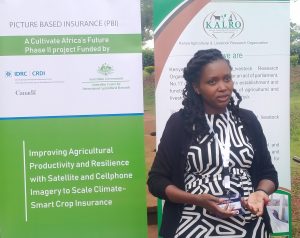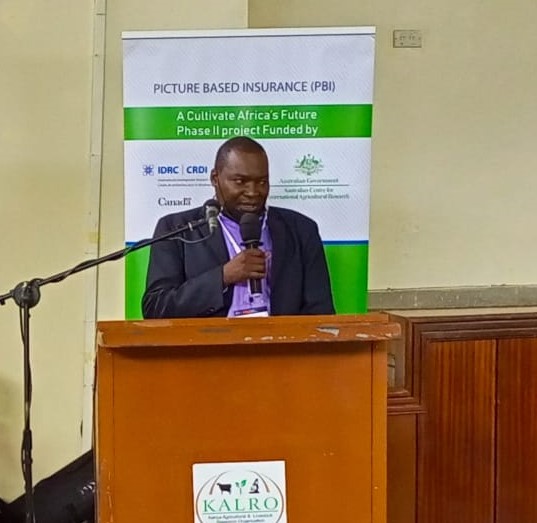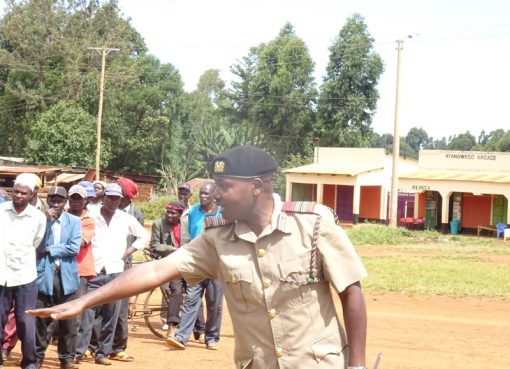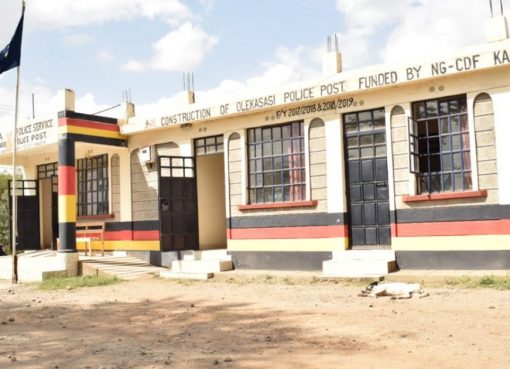Over 4,000 small-scale farmers in seven counties in the country have been assisted to insure their crops under a new insurance model that uses satellite imagery and smartphones to assess losses.
Under the new model –Picture Based Insurance (PBI) championed by local and international agriculture researchers and development partners, farmers are only required to take images of crops damaged and share with their insurers.
Speaking at the Kenya Agricultural and Livestock Research Organization (KALRO) in Kabete during a workshop on promoting stress tolerant varieties through climate smart crop insurance, one of the principal investigators of the project Dr. Benjamin Kivuva, Assistant Director in charge of Crops and Seed Systems at KALRO said the unique crop insurance using imagery was targeting small scale holders who have faced challenges when it comes to insuring their crops.
“A lot of small scale farmers practicing agriculture in less than two-acre farms have been grappling with the challenges of crop damage and this crop insurance will be able to cushion them when they experience total crop failure or probability of them losing their crops then they get some compensation,” he said.

Kivuva explained that the innovative climate-smart insurance product uses satellite and smartphone imagery to assess losses, monitor management practices, engage with farmers, and rigorously evaluate the demand and impacts of the product.
He further noted that the PBI assesses individual crop damage from a stream of crop pictures, uploaded by farmers themselves and this kind of service can help insurers verify claims without having to send an insurance agent into the field for every claim received.
“The project is unique because crop insurance is not common with small-scale farmers; we will reach a level of scaling up once ascertained and subsequently release it to be used by anyone else,” he added.
The Crops and Seeds director said KALRO is offering farmers free insurance and subsidized seeds and added once they win them over and farmers see the benefits, they will be able to take up the insurance on their own.
Kivuva noted that the pilot project that started in 2019 and ends next year targets small-scale farmers and after completion thereafter be implemented as a business with medium and large-scale farmers getting involved.
Another principal investigator with Agriculture and Climate Risk Enterprise (ACRE) Africa, Lilian Waithaka explained that for farmers to be able to benefit, they will need to acquire a smartphone and download a freely available, easy-to-use mobile application –Seeitgrow App onto their phones.
“Once the farmer has this in place they will be able to submit an initial picture of the plot and pay a premium payment of Sh200 and regularly be uploading repeat pictures of the plot within a span of every two weeks for it to be assessed for visible damage,” said Waithaka.
Under the project, she added, lead farmers dubbed champions and who are considered opinion shapers in the communities and who have substantial influence in agriculture practices will be trained on good agriculture practices as well as to take photo and transmit and equipped with smartphones to facilitate photo transmission and advisories interaction.
Waithaka said they have been working with seven counties namely Meru, Tharaka Nithi, Embu, Machakos, Makueni, Bungoma and Busia and targeting four value chains crops that are mostly promoted in those counties that is Maize, Sorghum, Beans and Green grams.
She explained that they have collected 46,000 images since inception up to the current rain season of 2021, which have gone through assessors to check for the damage and issue claim payment.
Waithaka however, acknowledged that there has been a challenge on these because of the slow process and added they have engaged an organization that has been digitizing the loss assessment and has proven 89 per cent in determining the damage.
“Farmers involved are also trained on good agricultural practices, provided advisory messages through phone, collect data on demand for inputs and sell or provide the inputs at a commission. The project is promoting stress tolerant varieties through climate smart insurance (innovative PBI) by bundling stress tolerance seeds with a comprehensive picture-based insurance-advisory service,” said Waithaka.
The Kenya Agricultural and Livestock Research Organization (KALRO) Director General Dr. Eliud Kireger in a speech read by Dr. Joyce Malinga in charge of quality insurance said mobile handset and picture-based advisory services are expected to have greater outreach especially for youth and women farmers for a fraction of the cost of standard extension services.
“Seed companies can promote their seeds using insurance-advisory services, which could help improve adoption and strengthening the brand of the seed company,” Kireger said
The DG said the livelihoods of millions of smallholder farmers across the developing world are under threat from extreme vagaries of weather due to climate change such as droughts, floods, heat waves, pests and diseases posing food production risks eventually farmers experiencing 100 per cent crop failure hence, the PBC insurance project will assist farmers
Apart from KALRO and ACRE, other implementing consortium comprises of researchers from International Food Policy Research Institute (IFPRI) and Wageningen University & Research (WUR), Groningen University and Co-funded by the Cultivate Africa’s Future of the International Development Research Center (IDRC) , Australian Center for International Agricultural Research (ACIAR) and the Dutch Research Council (NWO), Netherlands.
By Wangari Ndirangu




